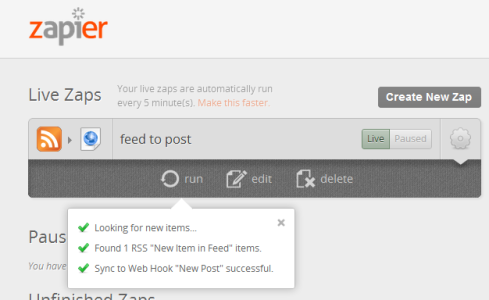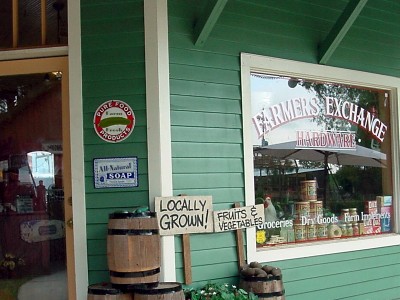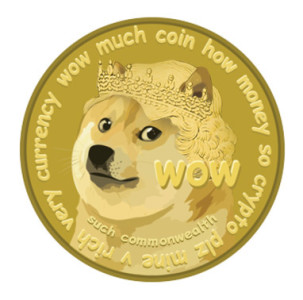
Tumblrs full of kitten pictures, websites ranking the helpfulness of individual restaurant reviews, Pinterest pages full of tasty ways to prepare vegetables you’ve never even heard of — at its core, the internet is about collections. We find topics we care about or people who we want to connect with and we build lists.
Some of these collections contain original contributions, like blog posts or memes. Others are purely an organization of what the collector in question finds online. The same has held true of most information management over the years: a library is also a curated collection of books judged to be worth consulting, as well as records or other information the library may have gathered or even created. It’s how we handle anything complex.
You Don’t Need Credentials to Buy a Domain Name
But while it’s tough to get the money to build a new library without a degree in library science, you can set up a new website for under a hundred dollars. Calling the curators who are building the information collections we base our lives on these days ‘uncredentialed’ may be overly kind: not to be cruel, but the only requirements for getting a Tumblr or Pinterest account is a valid email address.
That low barrier to entry isn’t a problem, but it is a fact we need to acknowledge if we’re going to talk about curation. When anyone can publish their curational efforts, effectively by accident, there’s a question of how useful those efforts are to anyone else. I’ve seen plenty of Pinterest boards that are meant to be intensely personal — it’s where people plan weddings and pick out tattoos for themselves, far more than they focus on sharing what they’ve found with other people, no matter what its creators intended.
There is value in that sort of collecting; I spend plenty of time browsing through other peoples’ Pinterest boards myself. They’re sources of things I might be interested in, based on my connection with the curator, as well as information about what my friends and family enjoy.
But there is a lot of noise coming through these channels, as well as through all the various options we have for publishing any sort of collection. No one can pay attention to every single channel that we can access. We have to be selective in a way that a scholar who had to physically go to wherever information happened to be never was.
Who Curates the Curators?
When finding the right piece of information or viewing the right piece of art required days of travel, there was (perhaps surprisingly) less of a problem in figuring out what information to pursue. With only one expert to talk to, you got a good pair of boots and headed out to talk to him.
Today, the wealth of information we can access is dangerous. How many times have you looked at one article on Wikipedia, only to find yourself engrossed in articles about Pleistocene megafauna or glam metal music hours later? We no longer face questions about what information is worth preserving or worth traveling days to learn. Rather, we have the problem of deciding which information is worth paying attention to. The job of the curator is far different right now than it was a few centuries ago.
Personal curation solves some small element of this question: quietly saving links that will help you go back and cook exactly the recipe you’re after or purchase the perfect outfit can let us handle a lot of the small questions in our lives. But when we’re taking on a new topic, either personally or professionally, curators have to provide more information. I recently read an article that covered the entire history of a musical genre I had no familiarity with; when I went looking for information, I was quickly overwhelmed. No single curator had taken it upon herself to create an introductory guide to the genre or even to suggest ten albums a new listener should pick up.
There may be a fan of that particular genre with a great playlist on a website devoted to music somewhere, but that hypothetical playlist doesn’t show up through a cursory web search — all that I’m really prepared to do if I have anything else on my plate I really need to be working on. There isn’t a lot of incentive for someone curating resources for her private consumption to bother publicizing that sort of resource, by the way: it’s rare that such a specialized list will earn the author any money, though a small amount of niche fame can be possible. Even that level of fame can be a double-edged sword: I have a friend who is an expert in an incredibly esoteric topic (as a life-long hobbyist who has published about his work online, he’s essentially one of a handful of experts in the world). He gets oddball questions all the time, to the point where it would take him significant effort to field these questions — but people aren’t willing to pay him for the answers. While a few people will continue sharing information out of love for a topic, there are more who will discontinue their work because of the effort involved.
To get the information we need, then, we’re left looking to a secondary level of curators: people who will seek out those awesome playlists and other collections and point attention to them. I’m not so sure that this is a long-term solution, however: while there are certain bloggers and other online curators making a living from ‘finding cool crap on the internet’ (the folks behind BoingBoing and Dooce come to mind as very different examples), those people are few and far between. In the meanwhile, however, there are plenty of people who aspire to that role or to otherwise make a living on the internet. There are not so many, however, that I can find playlists for somewhat obscure musical niches.
Expert Curation is Getting Expensive
There is an understood value of some sorts of curation: particularly talented curators who can make topics interesting and relevant have already found a variety of business models online. But if an expert curator is willing to specialize in certain fields, the money associated with their work can increase.
In fact, the amount some companies are willing to pay certain types of expert curators keeps going up. This obviously includes people who can curate interesting information to create an alluring social media feed — most companies are happy to pump money into marketing if it results in a corresponding increase in sales. However, other types of curation are in high demand. Anyone who can effectively parse and contextualize information about complicated topics (like business and finance) is very employable these days. Whether they’re writing broad advice for the masses or telling an individual company when to jump, an expert who can pull together different sources of data is incredibly valuable.
But the expense of accessing expert curators is going up, no matter what job description you have in mind. Collecting data is a time intensive process, full of time spent pursuing potentially useful tidbits only to find that they don’t really fit in with what you’re curating. I track all sorts of topics and just evaluating sources can be intense: when anyone can post anything to the internet, you can’t exactly assume that each piece of information you find is equally reliable. The more information a curator needs to sort through, the more expensive that sort of work is going to become.
It’s understandable that with the added cost of hiring someone as a curator, an employer or a client is going to want to see credentials as proof that the curator in question can handle the work. But that sort of proof may not be necessary, at least for any curator who can build a collection before hunting for work. An appealing collection of information, whether it’s a blog, a Pinterest board, or a book speaks for a curator’s ability far more than any other credential might — at least in this era of too-easily accessible information.
What do you curate? Do you feel like credentials make it easier to collect the ideas and items you focus on? Or do credentials just get in the way of the work you want to do?
Photo credit: Ginny




